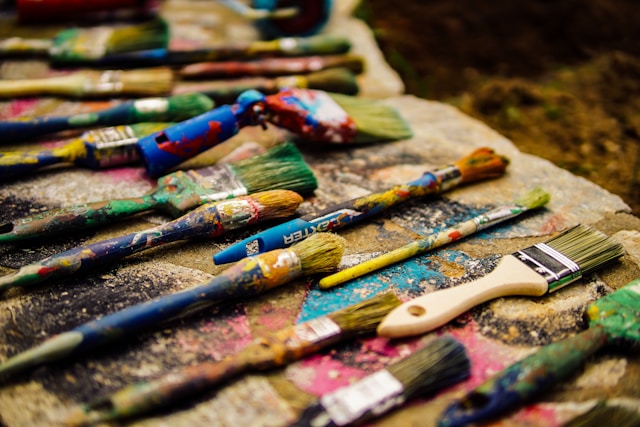As the winter season settles over New Zealand, the night sky comes alive with a celestial spectacle that marks the Māori New Year—Matariki. This annual event, celebrated by the Māori people for centuries, is a time of reflection, remembrance, and renewal. The Matariki Festival, dedicated to this significant occasion, offers a unique opportunity to experience the magic of Māori culture through a series of enchanting events. Here are the highlights of the Matariki Festival, showcasing the richness of this ancient tradition.
1. Matariki Dawn Ceremony
The festival begins with the Matariki Dawn Ceremony, a sacred and solemn event held in various locations across New Zealand. As the first light of dawn breaks, communities gather to welcome the rise of the Matariki star cluster, also known as the Pleiades. This moment marks the beginning of the Māori New Year. The ceremony includes traditional karakia (prayers), waiata (songs), and the sharing of stories passed down through generations. It is a profound experience that connects participants with the spiritual essence of Matariki.
2. Star-Gazing Events
Matariki is inherently linked to the stars, and the festival offers numerous star-gazing events that invite participants to explore the night sky. Expert astronomers and Māori navigators guide these sessions, sharing their knowledge of the stars and the significance of the Matariki cluster. Whether you are an avid stargazer or a curious newcomer, these events provide a mesmerizing view of the cosmos and deepen your understanding of Māori astronomical traditions.
3. Traditional Māori Performances
Immerse yourself in the vibrant world of Māori performing arts with traditional performances held throughout the festival. From powerful haka (war dances) to graceful poi dances, these performances are a testament to the rich cultural heritage of the Māori people. Groups such as kapa haka ensembles showcase their skills in storytelling through movement and song, creating an unforgettable experience for audiences.
4. Matariki Markets
The Matariki Markets are a festive hub where you can experience the best of Māori arts, crafts, and cuisine. Local artisans display their handmade goods, including weaving, carving, and jewelry, each piece telling a unique story. Food stalls offer traditional Māori dishes, providing a culinary journey that includes delicacies like hāngi (earth-cooked feast), rewena bread, and fresh kaimoana (seafood). The markets are a perfect place to find unique souvenirs and enjoy the festive atmosphere.
5. Workshops and Educational Activities
The festival also features a variety of workshops and educational activities designed to engage both children and adults. These sessions offer hands-on experiences in traditional Māori crafts such as flax weaving, carving, and tattooing. Educational talks cover topics ranging from Māori mythology and language to the historical significance of Matariki. These activities provide a deeper insight into Māori culture and allow participants to connect with the traditions on a personal level.
6. Cultural Tours and Heritage Trails
Explore the natural beauty and cultural heritage of New Zealand through guided tours and heritage trails offered during the Matariki Festival. These tours take you to significant Māori sites, where you can learn about the history and legends associated with each location. Knowledgeable guides share stories of the land, the people, and the celestial events that have shaped Māori culture. It’s an enriching experience that combines nature, history, and mythology.

7. Community Feasts
Community feasts, or hakari, are a highlight of the Matariki Festival, bringing people together to share food and celebrate the New Year. These gatherings are held in marae (Māori meeting grounds) and community centers, featuring a spread of traditional and contemporary Māori dishes. It’s a time for whanau (family) and friends to come together, reflect on the past year, and look forward to the future. The spirit of hospitality and togetherness that permeates these feasts is a core aspect of Matariki.
8. Matariki Art Exhibitions
Art enthusiasts will be delighted by the Matariki Art Exhibitions, which showcase the work of contemporary Māori artists. These exhibitions, held in galleries and public spaces, feature a range of media including painting, sculpture, and digital art. The artworks explore themes of identity, heritage, and the natural world, offering a modern perspective on traditional Māori concepts. It’s a celebration of creativity and an exploration of how the Matariki star cluster inspires artists today.
Plan Your Visit
Attending the Matariki Festival is a unique and enriching experience that offers a window into the soul of Māori culture. Here are some tips to help you plan your visit:
- Check Event Schedules: Matariki events are held across various locations in New Zealand. Check the festival’s official website or local listings for event schedules and locations;
- Dress Warmly: Many Matariki events, especially star-gazing and dawn ceremonies, take place outdoors. Dress warmly and bring blankets to stay comfortable;
- Engage with the Community: Take the opportunity to speak with local Māori elders and community members. Their stories and insights add a personal dimension to the festival experience;
- Participate Actively: Join in the workshops and activities. Hands-on participation is the best way to learn and appreciate Māori traditions;
- Respect the Culture: Matariki is a time of cultural significance for the Māori people. Show respect by observing customs and participating in events with an open heart and mind.
The Matariki Festival is more than just a celebration; it is a journey into the heart of Māori culture and a time for all to reflect, renew, and reconnect with the land and the stars. Whether you are a local or a visitor, the festival offers a unique opportunity to immerse yourself in the magic of the Māori New Year and to celebrate the enduring spirit of a vibrant culture.

